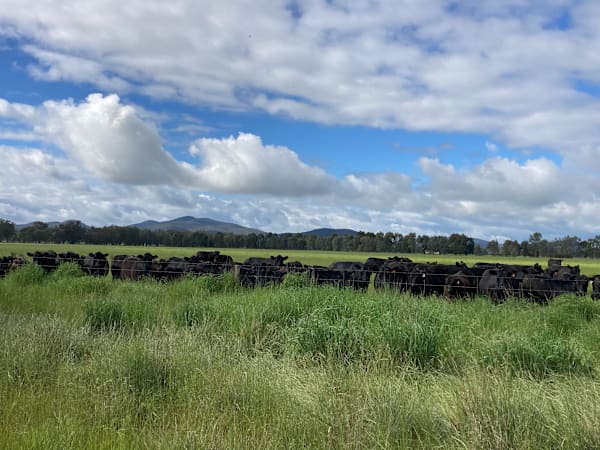NEW national research released last month paints a confronting picture of the declining mental health of Australian farmers, including those in Victoria experiencing high levels of depression and anxiety with the impact of weather and natural disasters, and COVID, having a huge impact.
"The National Farmer Wellbeing Report" commissioned by Norco (an Australian owned dairy cooperative) in partnership with the National Farmers' Federation(NFF) had found that 33 per cent of Victoria's farmers reported a decline in their mental health over the past few years.
"In recent years, close to half (45 per cent have felt depressed, with more than half (55 per cent) experiencing anxiety," the report said, with almost one in 10 (8 per cent) farmers saying it was a frequent experience.
Among the most confronting statistics is that nearly half of the Victorian farmers (43 per cent) have had thoughts of self–harm or suicide in their lifetime, while a third (30 per cent) have attempted self–harm or suicide.
Dr Helen Haines federal Member for Indi is well aware of the urgency of the situation and how widespread.
Latest Stories
"The findings from the NFF regarding mental health issues among our farming community are concerning, but also highlights the resilience of farmers in the face of significant challenges including natural disasters."
"The findings regarding the impact of natural disasters on farmers' mental health and finances align with the experiences that have been shared with me as a member of parliament," Dr Haines said.
"Mental health support in regional, rural and remote Australia is harder to access than in the major cities," she said.
Mrs Haines stressed the government must do more to increase the numbers of mental health professionals in the regions through offering university debt relief to psychologists, psychiatrists, mental health nurses and social workers who live and work in the regions and increasing training locally, to ensure those experiencing mental ill health can get the help they need.
"I have spoken with Minister for Mental Health Emma McBride and will continue conversations with her to ensure the Government understands the needs in our region," she added.
Dr Haines encouraged anyone having a tough time with their mental health to seek help, especially farmers.
She referred to a new online resource, https://takingstock.community, offering resources created with farmers and rural communities in mind.
Professional service providers are all too aware of the ongoing mental health issues in rural towns and outlying areas.
Mansfield District Hospital's social worker, Jessica Cios, believes that mental health services in regional Victoria require more funding for better access.
"Farmers live a unique lifestyle, often working alone for the majority of the day and facing issues such as natural disasters impacting their primary source of income; this can lead to depression and anxiety, said Ms Cios.
"If they have nowhere to go for support, their mental health issues are exacerbated," she said.
"Almost all mental health supports for Mansfield are based in other towns such as Benalla or Wangaratta, which means they travel to Mansfield usually once per week."
Ms Cios said, "This is not enough support for a town the size of Mansfield which is continuing to grow at a rapid rate.
"Having services that are based in Mansfield and funded for mental health outreach workers who can visit farmers at their own home would be the ideal situation," she said.
The NFF's Vice President, David Jochinke, a grain and livestock farmer in Victoria's Wimmera region said the wellbeing report highlights a sense of shame and stigma still felt by many farmers when talking about their mental health and urges governments and industry representatives to step in to overcome barriers providing mental health support.
"... we're also calling on all levels of government to urgently assess the resourcing they provide to farming communities as its clear their unique needs are not being met by existing services," said Mr Jochinke.
Despite their struggles, the report said that nearly two–thirds (60 per cent) of Victorian farmers remain optimistic about the future and viability of farming in Australia and believe farming is a rewarding career path for the next generation.
However, the research highlighted that more than three–quarters (77 per cent) of those surveyed believed the Australian public undervalues the nation's farmers and their role.
If you or anyone you know needs help:
• Lifeline on 13 11 14
• Kids Helpline on 1800 551 800
• Beyond Blue on 1300 224 636
• Suicide Call Back Service on 1300 659 467
• Headspace on 1800 650 890
• ReachOut at au.reachout.com
• MensLine Australia on 1300 789 978
• Head to Health at headtohealth.gov.au













